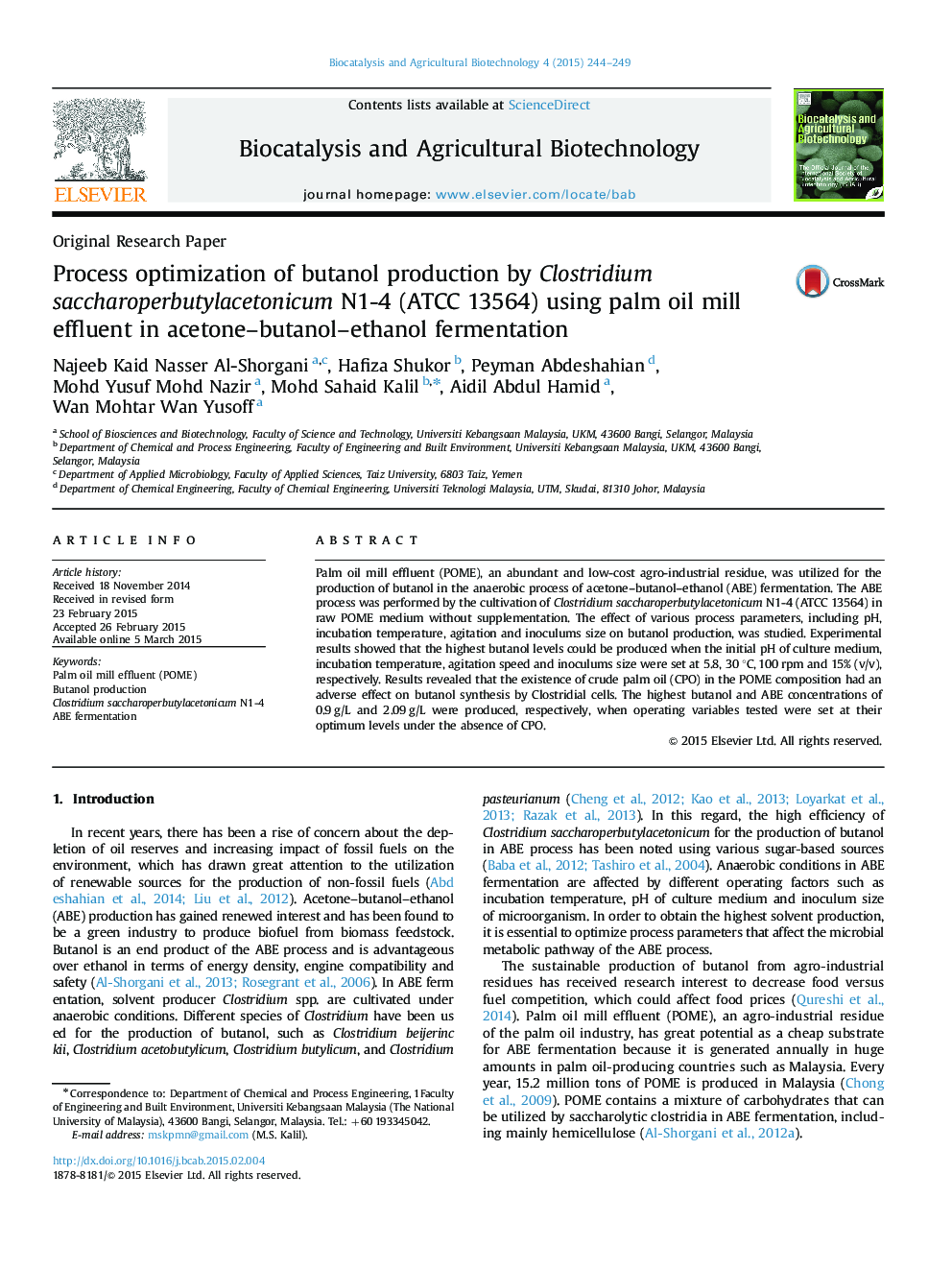| Article ID | Journal | Published Year | Pages | File Type |
|---|---|---|---|---|
| 2075444 | Biocatalysis and Agricultural Biotechnology | 2015 | 6 Pages |
Palm oil mill effluent (POME), an abundant and low-cost agro-industrial residue, was utilized for the production of butanol in the anaerobic process of acetone–butanol–ethanol (ABE) fermentation. The ABE process was performed by the cultivation of Clostridium saccharoperbutylacetonicum N1-4 (ATCC 13564) in raw POME medium without supplementation. The effect of various process parameters, including pH, incubation temperature, agitation and inoculums size on butanol production, was studied. Experimental results showed that the highest butanol levels could be produced when the initial pH of culture medium, incubation temperature, agitation speed and inoculums size were set at 5.8, 30 °C, 100 rpm and 15% (v/v), respectively. Results revealed that the existence of crude palm oil (CPO) in the POME composition had an adverse effect on butanol synthesis by Clostridial cells. The highest butanol and ABE concentrations of 0.9 g/L and 2.09 g/L were produced, respectively, when operating variables tested were set at their optimum levels under the absence of CPO.
